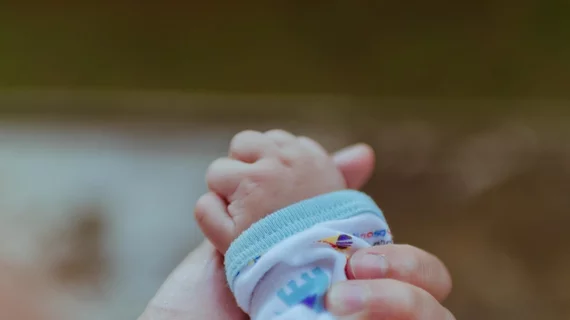Heart damage related to COVID-19 detected in 2-month-old infant
Myocardial injury has been detected in a young infant with COVID-19. A cardiologist-led team of specialists wrote about the case in JACC: Case Reports.
The infant in question, just two months old, was first brought in for treatment after an incident when feeding was followed by choking and cyanosis. No history of fever, cough, respiratory tract infection symptoms or vomiting was reported, though the infant had been born prematurely at 33 weeks.
When the infant was first tested for COVID-19, the test came back negative. A follow-up test, however, came back positive. A 12-lead electrocardiogram revealed clear signs of myocardial injury related to COVID-19 and symptoms of heart failure. The infant received fluid resuscitation, inotropic support for hypotension and mechanical ventilation. Treatment with remdesivir was also permitted.
The infant did recover with normal heart function and was discharged, but the authors emphasized that it remains important to keep track of such instances as the pandemic rages on.
“The presentation and clinical course of this patient mirrors four case reports of acute myocardial injury reported in adult patients with COVID-19,” lead author Madhu Sharma, MD, a pediatric cardiologist at The Children’s Hospital at Montefiore in New York City, said in a statement from the American College of Cardiology. “Most children with COVID-19 are either asymptomatic or have mild symptoms, but our case shows the potential for reversible myocardial injury in infants with COVID-19. Testing for COVID-19 in children presenting with signs and symptoms of heart failure is very important as we learn more about the impact of this virus.”
The full case report is available here.

